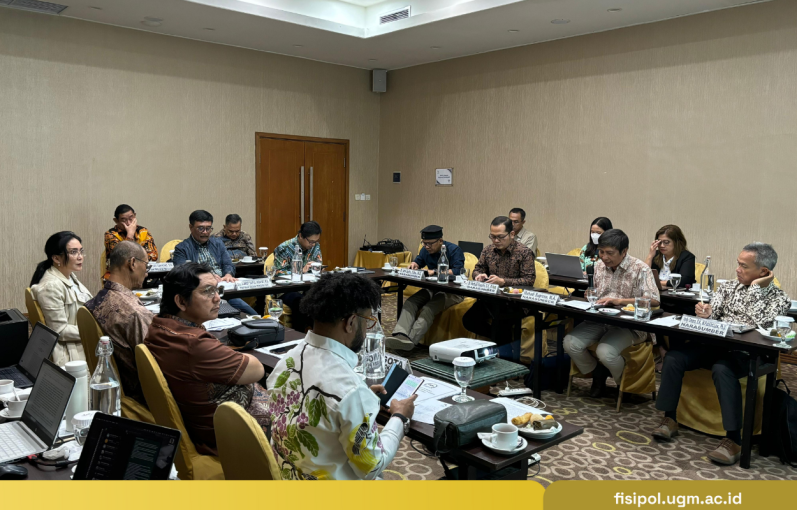
Yogyakarta, July 2nd 2024─Indonesia’s democratic transition has received global attention for its success in promoting constitutional change without national disintegration. However, over time, the democratic tools that were originally running in accordance with the corridors of the constitution began to face major challenges. The People’s Consultative Assembly (MPR) as an institution that has produced fundamental changes to the 1945 Constitution of the Republic of Indonesia (UUD NRI 1945) tries to move to overcome this. The Faculty of Social and Political Sciences (FISIPOL) of Universitas Gadjah Mada (UGM) as one of the academic actors fully supports this effort by organizing a Focus Group Discussion (FGD) on Tuesday (2/7), at the Merapi Room of Kimaya Hotel.
The FGD focuses on strengthening the democratic system in Indonesia, especially in relation to the constitutional problems that are being faced.
“The 2024 election was considered by many to be the most brutal election. There were many abusive practices, starting from law enforcement, the Corruption Eradication Commission (KPK), state administrators, including constitutional administrators. We need to study all of this in depth to be able to decide on a form of democratic system in the future that is much healthier, effective and truly respects the law and is able to encourage much better public participation and is not easily intervened by power,” said Drs. Djarot Saiful Hidayat, M.S., as the Chairman of the MPR RI Study Board.
In many countries, democracy often shows a process of totalitarian creation using legal and constitutional instruments of democracy. This is shown by the emergence of leaders who are elected through democratic mechanisms but carry out dictatorial politics in the process by removing restrictions on power. This is evidence that democracy can be threatened through actions that are legal and constitutional, but which actually undermine democracy.
Dr. Wawan Mas’udi, Dean of Faculty of Social and Political Sciences of UGM, said, “There is indeed a tendency in the world, democracy that experiences a side back is often born by populist leaders. The question is whether the patterns of populism that have been formed in Indonesia can shift towards authoritarianism. This is what we have to be careful of.”
In its journey, democracy needs to be kept alive through efforts to institutionalize democracy accompanied by an ongoing democratization process. This effort needs to be done to prevent democracy from losing its spirit and turning into a mere instrument.
Specifically regarding this matter, the discussion took place with four political experts, namely Dr. Arie Sujito, S.Sos., M.Si., Dr. Nurhadi Susanto, S.H., M.Hum., Muhadi Sugiono, M.A., and Andy Omara, S.H., M.Pub&Int.Law., Ph.D., and attended by members and staff of the MPR RI Study Board.
The FGD is expected to gather comprehensive and holistic recommendations and inputs to formulate a democratic Indonesian constitutional system in the future.
